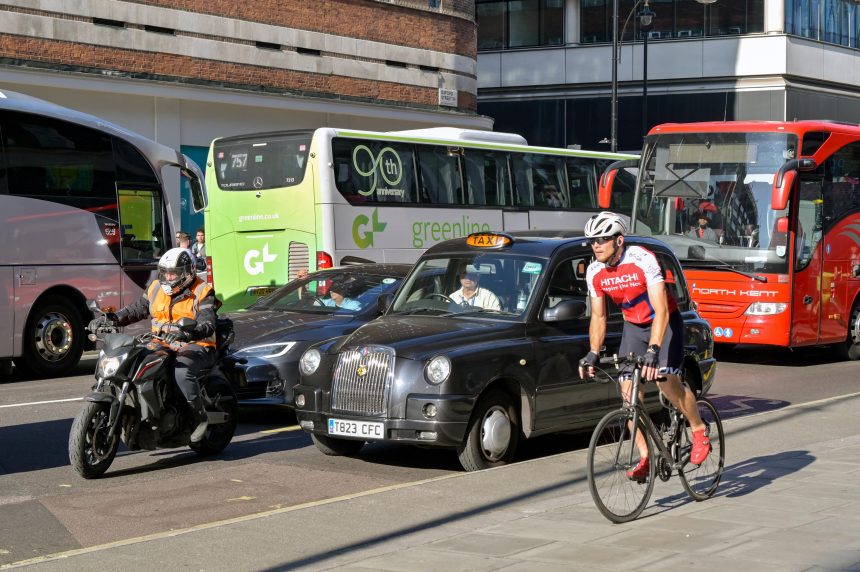Your article about congestion last month struck a chord with me, as it is something that has certainly gotten worse in urban areas in the past few years — particularly, as you say, in London.
Much of it is caused by the recent proliferation of cycle lanes, especially in urban areas. London, for instance, has introduced hundreds of miles of the things, and it is the cycle-specific crossing points controlled by lights that I have observed to be one of the root causes of congestion in the capital.
As a coach operator, we have ceased to organise advertised day tours into central London – a destination we used to travel to frequently – because the return journey is now risking one driver exceeding their 10- hour total driving time when our pick-ups and drop-offs to and from the Midlands are factored in.
Five years ago, the day tours were usually achieved in up to eight hours’ total driving time.
In respect of using two drivers going to London, we can of course do this, but why should any operator have to? If obstacles are placed on us travelling to and from London with Euro VI engine vehicles, it is a further own goal by the green agenda. This is regression, not progress.
It is a tragic irony that these cycle lanes and related apparatus are driven by the green agenda and the quest for clean air, something that Mayor of London Sadiq Khan is espousing to be a human right. Yet these very articles of doing good are undermining our own industry, preventing PSVs from carrying up to 70 people — and that is 70 people taken out of cars — through an urban area any faster than walking pace.
Indeed, I wrote to Mr Khan last August highlighting this and specific examples in London, but I have never had the courtesy of a full reply from his office.
You’d think given his crusade against carbon emissions, he’d welcome coaches and buses with open arms, but the man is either being poorly advised or is otherwise just hypocritical.
How can things change? Many local authorities and regional leaders are top-heavy with civil servants that formulate grand transport schemes to be rubber stamped by elected officials. They usually have very little, if any, consideration for coaches and buses on their roads.
This can only change where councils and regional authorities are legally obliged to consult multiple PSV operators for any proposed alteration to road structures or Traffic Regulation Orders.
Julian Phillips
Philips International Travel
Bewdley



























